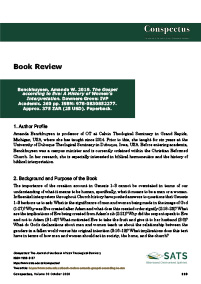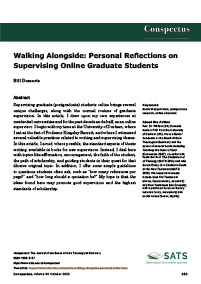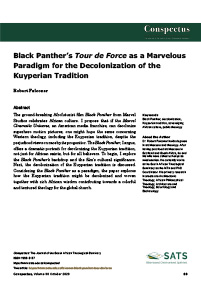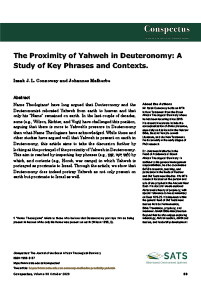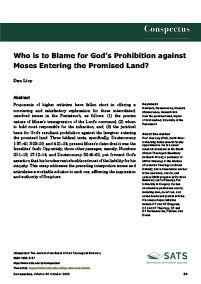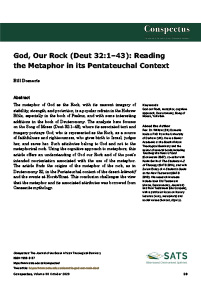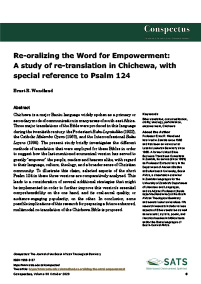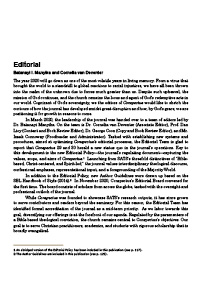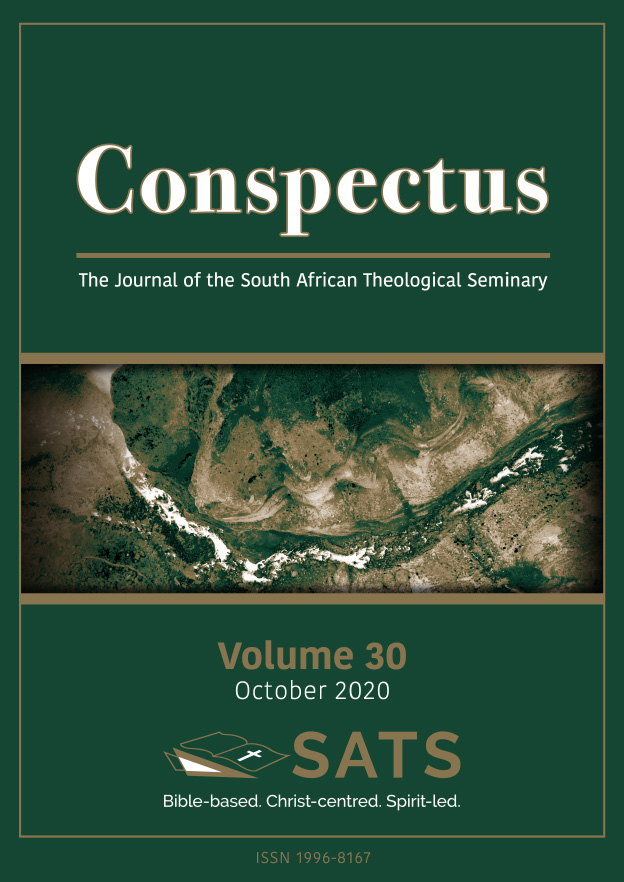Book Review: The Gospel according to Eve (Amanda W. Benckhuysen)
The importance of the creation account in Genesis 1–3 cannot be overstated in terms of our understanding of what it means to be human, specifically, what it means to be a man or a woman. Influential interpreters throughout church history have posited answers to questions that Genesis 1–3 beckons us to ask: What is the significance of men and women being made in the image of God (1:27)?...
Walking Alongside: Personal Reflections on Supervising Online Graduate Students
Keywords: doctoral supervision, postgraduate research, online education
Supervising graduate (postgraduate) students online brings several unique challenges, along with the normal routine of graduate supervision. In this article, I draw upon my own experiences at residential universities and for the past decade and a half, as an online supervisor…Black Panther’s Tour de Force as a Marvelous Paradigm for the Decolonization of the Kuyperian Tradition
Keywords: Black Panther, decolonization, Kuyperian tradition, sovereignty, African culture, public theology
The ground-breaking Afrofuturist film Black Panther from Marvel Studios celebrates African culture. I propose that if the Marvel Cinematic Universe, an American media franchise, can decolonize superhero motion pictures, one might hope the same concerning Western theology, including the Kuyperian tradition, despite the prejudiced views on race by its progenitor. Black Panther, I argue, offers a dramatic portrait for decolonizing the Kuyperian tradition, not just for African saints, but for all believers…The Pericope Boundary in Ephesians 5:18-24: Discourse Markers Favor the Break Being at Verse 22
Keywords: discourse analysis, discourse markers, mutual submission, periodic sentence, point of departure
Since the proliferation of scholarly works examining Ephesians 5 through the lens of modern gender debates, the preferred segmentation of the text in many articles, commentaries, Bible translations, and Greek editions of the New Testament has shifted. Verse 21, “submitting to one another out of reverence for Christ,” is now commonly grouped with verses 22–24 instead of with verses 18–20…The Proximity of Yahweh in Deuteronomy: A Study of Key Phrases and Contexts
Name Theologians have long argued that Deuteronomy and the Deuteronomist relocated Yahweh from earth to heaven and that only his “Name” remained on earth. In the last couple of decades, some (e.g., Wilson, Richter, and Vogt) have challenged this position, arguing that there is more to Yahweh’s presence in Deuteronomy than what Name Theologians have acknowledged…
Who is to Blame for God’s Prohibition against Moses Entering the Promised Land?
Keywords: Numbers, Deuteronomy, Moses’s disobedience, Moses’s ban from the promised land, higher critical method, historicity of the Pentateuch
Proponents of higher criticism have fallen short in offering a convincing and satisfactory explanation for three interrelated, unsolved issues in the Pentateuch, as follows: (1) the precise nature of Moses’s transgression of the Lord’s command; (2) whom to hold most responsible for the infraction; and, (3) the juridical basis for God’s resultant prohibition against the lawgiver entering the promised land…God, Our Rock (Deut 32:1-43): Reading the Metaphor in its Pentateuchal Context
Keywords: God our Rock, metaphor, cognitive approach, Deuteronomy, Song of Moses, Yahwism
The metaphor of God as the Rock, with its nascent imagery of stability, strength, and protection, is a popular refrain in the Hebrew Bible, especially in the book of Psalms, and with some interesting additions in the book of Deuteronomy. The analysis here focuses on the Song of Moses (Deut 32:1–43), where its associated text and imagery portrays God, who is represented as the Rock…Re-oralizing the Word for Empowerment: A study of re-translation in Chichewa, with special reference to Psalm 124
Keywords: Bible translation, contextualization, orality, theology, performance, empowerment, Chichewa
Chichewa is a major Bantu language widely spoken as a primary or secondary mode of communication in many areas of south-east Africa. Three major translations of the Bible were produced in this language during the twentieth century: the Protestant Buku Lopatulika (1922), the Catholic Malembo Oyera (1966), and the Interconfessional Buku Loyera (1998). The present study briefly investigates the different methods of translation that were employed for these Bibles…Conspectus 30
October 2020

